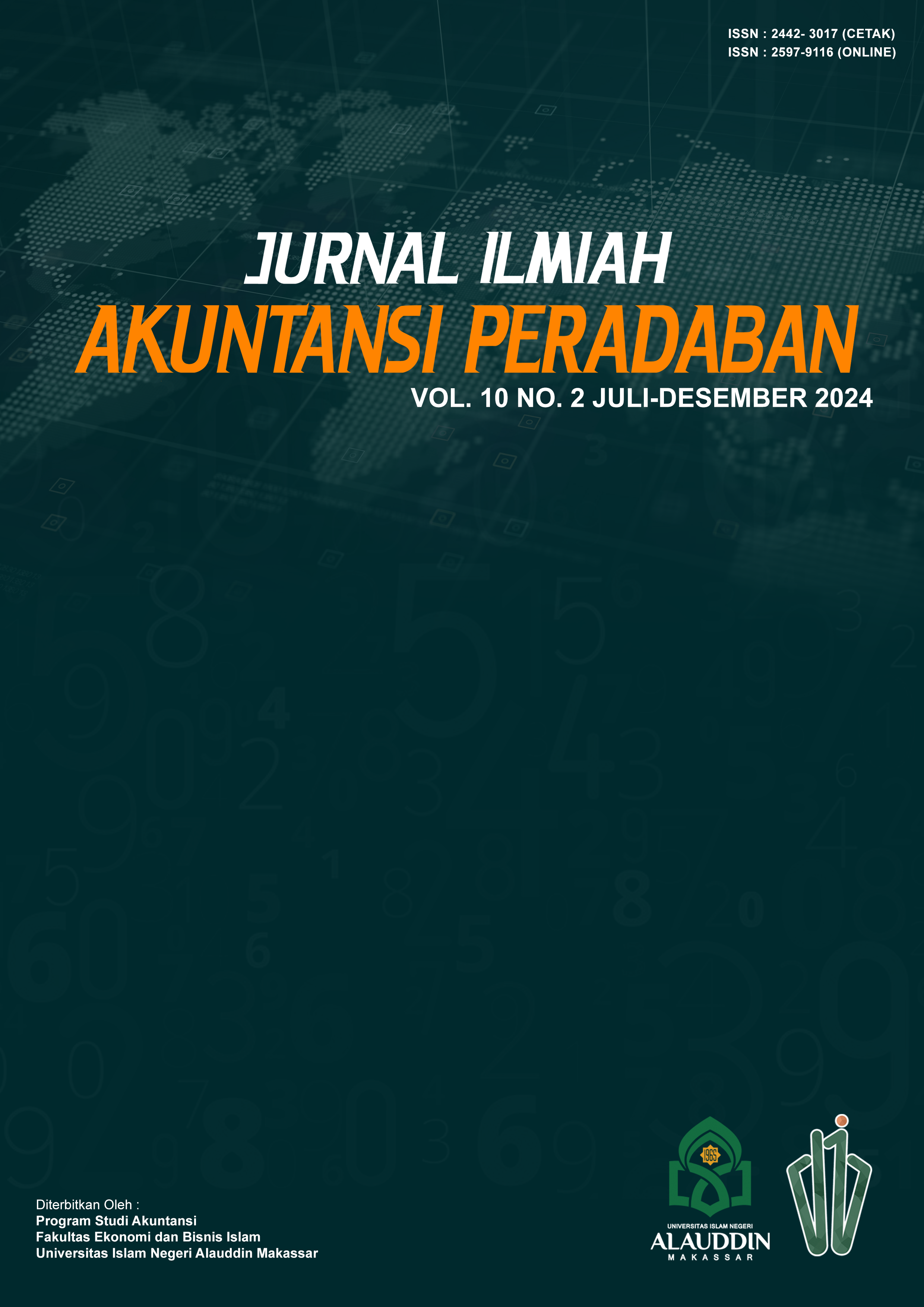Pengaruh Kesadaran Wajib Pajak, Pengetahuan Wajib Pajak, Kualitas Pelayanan, Sanksi Perpajakan, dan Motivasi Wajib Pajak Terhadap Kepatuhan Wajib Pajak Orang Pribadi
Abstract
The study is intended at exploring and identifying in depth how different factors influence the level of compliance with tax obligations. To obtain representative data, a random sampling method was applied, and 100 respondents were selected to participate. Data collected from respondents was then analyzed using double linear regression techniques, which allowed researchers to measure and assess the relationship between each factor studied and compliance with tax obligations in a comprehensive manner. Specifically, high awareness of tax liability contributes greatly to increased tax compliance. In addition, in-depth knowledge of tax regulations also plays an important role in determining how obedient a person is in fulfilling his or her tax obligations. The quality of tax authorities also plays a role in improving compliance, with good service inclining to inspire taxpayers to comply more. Moreover, implementation of rigorous and consistent tax sanctions has also been shown to improve compliance with tax obligations. In other words, this study provides evidence that awareness of tax obligations, a good understanding of tax regulations, adequate quality of service from tax authorities, effective enforcement of sanctions, and individual motivation play an important role in improving tax compliance. These findings confirm the importance of focusing on these and provide valuable insights for future tax policies.
Keywords: Taxpayer Awareness, Tax Knowledge, Service Quality, Tax Sanctions, Taxpayer Motivation, Taxpayer Compliance
Copyright (c) 2024 Nadila Safitri, Arief Himmawan Dwi Nugroho

This work is licensed under a Creative Commons Attribution 4.0 International License.
Authors who publish with this journal agree to the following terms:
- Authors retain copyright and grant the journal right of first publication with the work simultaneously licensed under a Creative Commons Attribution License that allows others to share the work with an acknowledgement of the work's authorship and initial publication in this journal.
- Authors are able to enter into separate, additional contractual arrangements for the non-exclusive distribution of the journal's published version of the work (e.g., post it to an institutional repository or publish it in a book), with an acknowledgement of its initial publication in this journal.
- Authors are permitted and encouraged to post their work online (e.g., in institutional repositories or on their website) prior to and during the submission process, as it can lead to productive exchanges, as well as earlier and greater citation of published work (See The Effect of Open Access).
Under the following terms of Creative Commons:
-
Attribution — You must give appropriate credit, provide a link to the license, and indicate if changes were made. You may do so in any reasonable manner, but not in any way that suggests the licensor endorses you or your use.
-
NonCommercial — You may not use the material for commercial purposes.
- No additional restrictions — You may not apply legal terms or technological measures that legally restrict others from doing anything the license permits.


